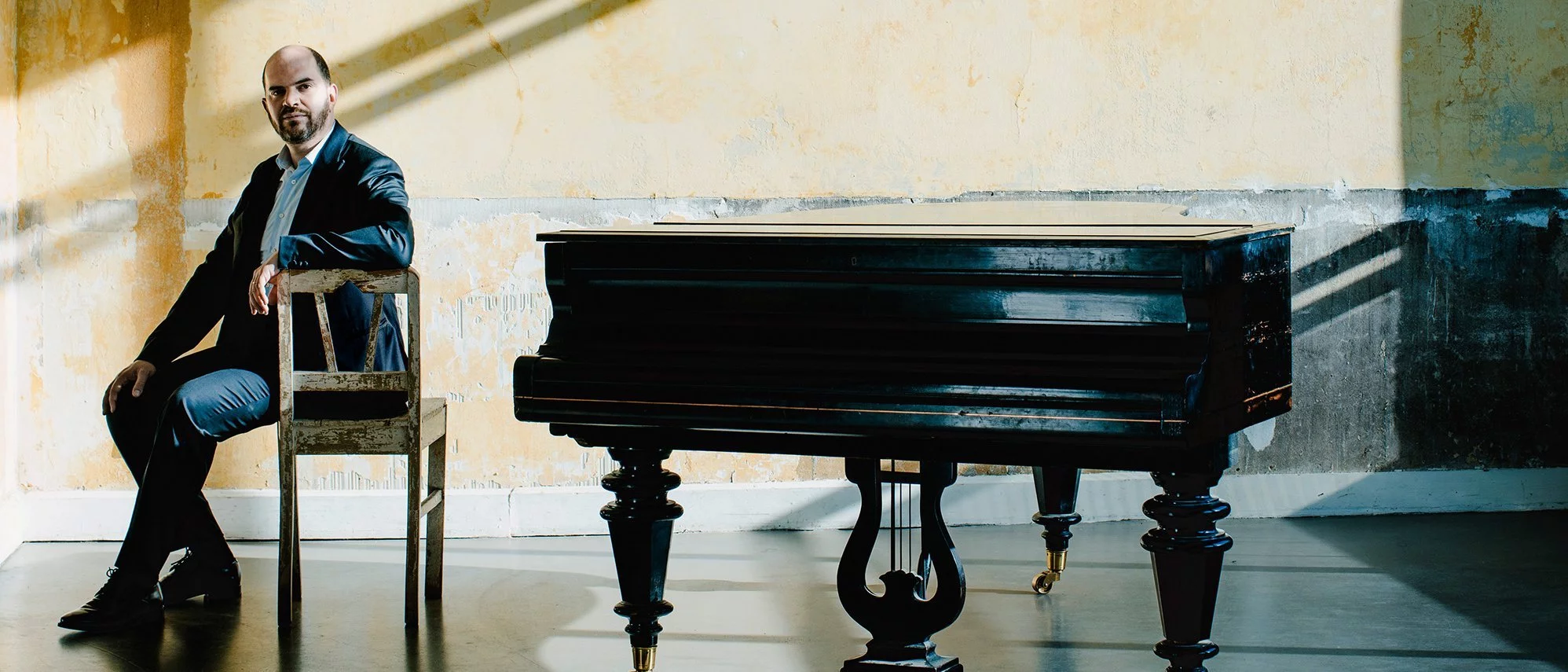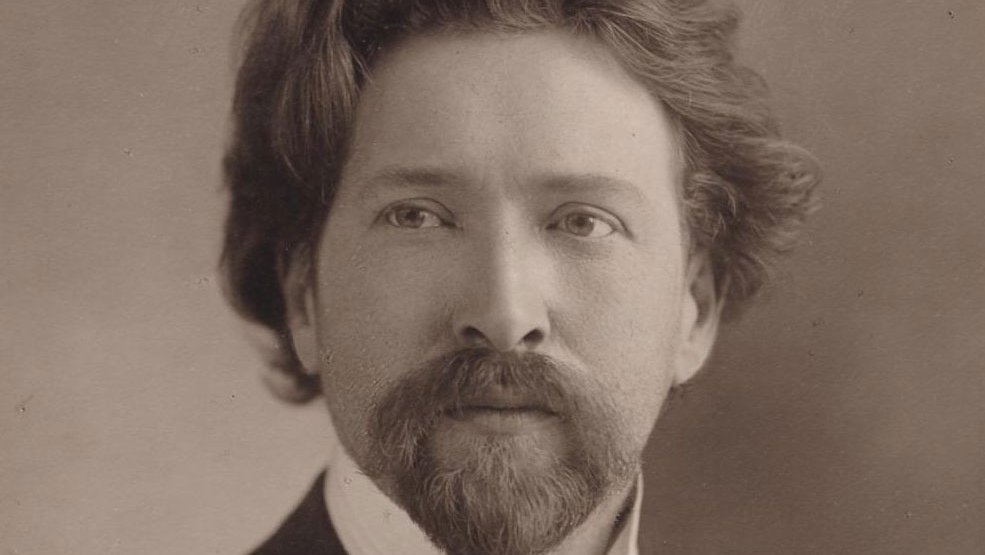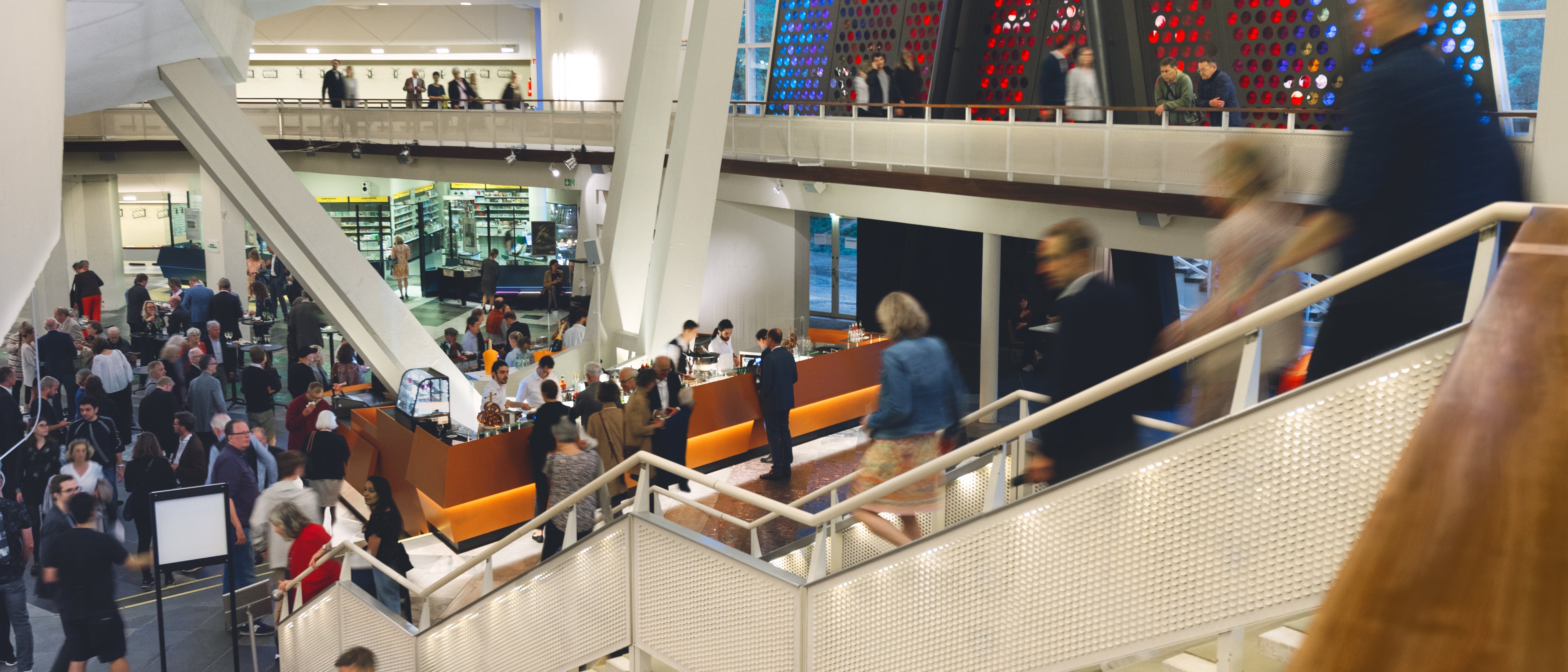
Concert information
Info
Join us for the launch of a new series of short programmes with the Berliner Philharmoniker! We invite you to three Friday concerts this season under the title of “Ausklang” (finale). Without much ado, without a break, focussing on a single great work of orchestral music. Afterwards, the event continues in the foyer with a get-together over a free drink will. In the first instalment of the series, we present Ferruccio Busoni’s piano concerto, which unleashes pianistic fireworks and escalates into something monolithic when a male chorus is added to the performance forces for the finale. Sakari Oramo conducts, with Kirill Gerstein at the piano.
Artists
Berliner Philharmoniker
Sakari Oramo conductor
Kirill Gerstein piano
Men of the Rundfunkchor Berlin
Andrea Thilo presentation
Programme
Ferruccio Busoni
Concerto for Piano and Orchestra with Male Choir in C major, op. 39
Additional information
Join us after the concert for a get-together in the foyer, with live music and interviews. Your ticket entitles you to a free drink.

Main Auditorium
20 to 49 €
A Wall-to-Wall Soundscape
Ferruccio Busoni’s Piano Concerto

Never heard of the genre of piano concertos with male chorus? That’s not surprising, because the one written by Italian-German composer Ferruccio Busoni between 1902 and 1904 is the only concerto of its kind. Busoni, who spent most of his life in Berlin, was famous as a pianist, but he was also a composer, a teacher, a conductor, an arranger, an author and a musicologist. As well as leading a myriad lives simultaneously, he also composed that way: all-encompassing music, often sized XXL.
Ungraspable
In search of Ferruccio Busoni

Pianist, teacher and composer Ferruccio Busoni is a unique phenomenon in the history of music. His works are a fascinating blend of originality and depth, of intellect and heart, and of Italian Romanticism with German musical tradition – and yet he is at best a shadowy presence on today’s international concert programmes. The reasons for this are many and varied.
Biographies
Sakari Oramo
BBC Music Magazine praised his ”feverish energy“, while the Telegraph noted that his interpretations ”really get under the skin“. ”The special intensity of orchestral playing“, says Sakari Oramo, ”is created in rehearsals. It comes from the atmosphere you create together.“ The Berliner Philharmoniker is an orchestra with ”so much energy“, notes the Finnish conductor, ”that you just have to direct it where the music demands it. In some places you take energy out, in others you put more in. It’s a balancing act.“
Born in Helsinki, Oramo began his musical career as concertmaster of the Finnish Radio Symphony Orchestra. He then studied conducting with the famous conductor and pedagogue Jorma Panula at the Sibelius Academy - and in 1998 succeeded Sir Simon Rattle at the City of Birmingham Symphony Orchestra, a bold gamble that proved successful. ”At the time,“ Oramo recalls, ”I was still completely inexperienced. I had never worked with an ensemble like this before.“ Today, Oramo conducts the Royal Stockholm Philharmonic Orchestra and the BBC Symphony Orchestra. He continues his association with the Finnish Radio Symphony Orchestra as an honorary conductor, and appears as a guest with renowned orchestras worldwide. He made his debut with the Berliner Philharmoniker in 2001.
Kirill Gerstein
Kirill Gerstein has won widespread acclaim for his transparent, weightless playing – his trademark even in the most powerful passages. Observers have also praised his relaxed and natural style, along with the fact that every note seems perfectly placed. Whether performing as a soloist with an orchestra, as part of an ensemble or in a solo recital, the Russian-born pianist is a chamber musician through and through. Kirill Gerstein’s career began in 2000 with his concert debut with the Tonhalle Orchestra Zurich. In 2001 he won the International Arthur Rubinstein Competition in Tel Aviv; the following year he was honoured with the Gilmore Young Artist Award, and went on to make acclaimed debuts with the Staatskapelle Dresden, the Munich and Vienna Philharmonic Orchestras and, in 2016, with the Berliner Philharmoniker.
As the son of a mathematics teacher and a music teacher, he grew up in two musical worlds. Jazz was his first love, but he ultimately chose classical music, studying with Solomon Mikowsky in New York and Dmitri Bashkirov in Madrid. He regards his involvement with jazz as an important building block in his artistic development: ”I learnt that music is more than just black dots on paper. My experiences with improvisation and timing in jazz influence the way I play classical music.“
Rundfunkchor Berlin
Critics have variously described the sound of the Rundfunkchor Berlin as brilliant, flexible, transparent, versatile, and precise. ”There is probably no other choir that does so many different things so well and that can deal with such a broad repertoire and such different formats,“ says Gijs Leenaars, who has been the Rundfunkchor Berlin’s chief conductor and artistic director since the beginning of the 2015/16 season. Programmes range from large-scale choral symphonies and a cappella concerts to interdisciplinary projects that break up the classical concert format and allow choral music to be experienced in a new way. In ”sing-along concerts“, the choir members invite enthusiastic amateurs to make music with them.
Its outstanding ability and versatility make the Rundfunkchor Berlin, founded in 1925, a partner of major orchestras and conductors. The Rundfunkchor Berlin has performed regularly with the Berliner Philharmoniker since the early 1990s and has taken part in performances of Antonín Dvořák’s Stabat mater, Giuseppe Verdi’s Messa da Requiem, Berlioz’s Romeo and Juliet and György Ligeti’s Requiem. Joint staging projects include the famous performances of Johann Sebastian Bach’s St Matthew Passion and St John Passion with Sir Simon Rattle and director Peter Sellars. The collaboration continues under chief conductor Kirill Petrenko, for example in Felix Mendelssohn’s oratorio Elijah, Arnold Schoenberg’s oratorio Die Jakobsleiter and Richard Strauss’ Elektra.
Plan your visit
Opening hours, program booklets, dress code, introductions and more
How to get to the Philharmonie Berlin
Whether by bus, train, bike or car: Here you will find the quickest way to the Philharmonie Berlin - and where you can park there.
Ticket information
Advance booking dates, opening hours, seating plans, discounts
